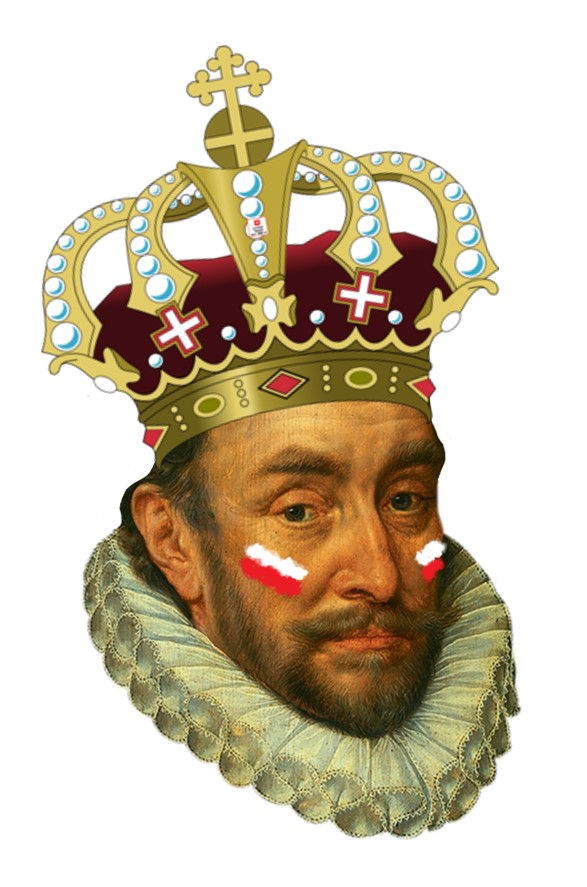
William of Orange, the Dutch “Father of the Fatherland”, may have considered having a go at the Polish throne. In March 1575, his councilor and diplomat Philips of Marnix, Lord of Saint-Aldegonde, visited Cracow upon the instigation of his official master, Elector Palatine Frederick III. While he was in Cracow, Marnix met with the Polish nobleman and influential Calvinist Piotr Zborowski. The Polish throne was at that time vacant, and preparations were being made for the election of a new king. So what was Marnix doing in Cracow, the seat of Polish power?
A number of letters featuring Marnix, William, William’s younger brother John, Zborowski and the Czech nobleman William of Rosenberg, suggest that Marnix’s visit to Poland was strongly connected to the upcoming Polish elections. With Marnix still present in Cracow, for example, Zborowski on the 25th of March wrote to William of Orange, praising his struggle “for religion and for the freedom of your fatherland”, and explaining how Marnix’s visit had been essential for “our actions”. The letters make clear that the political situation in the Netherlands and France, as well as the Polish nobility’s assembly on the 12th of May, which formed the official beginning of the royal elections, played a key role in these “actions”, yet the plans discussed by Marnix and Zborowski remain shrouded in mystery.
It has been argued that Marnix was sent to Cracow in order to propose William of Orange’s candidacy for the Polish throne, or at least to inquire about his chances, should he make a bid for power. This is not entirely implausible: being a Prince of Orange, William would have been of sufficiently high nobility to become king, and his fight against the Catholic Habsburgs would ensure him a considerable following among Polish Calvinists, who had become a force to be reckoned with. As King of Poland (and Grand Duke of Lithuania), William would be in a much better position to fight Spain. On the other hand, his rebellion against Philip II may have been an impediment, rather than an incentive. William had his hands full: only the year before, in 1574, the Dutch had won an important victory by lifting the Siege of Leiden, after which William had founded Leiden University. He had sent Marnix to Germany, in fact, in order to find professors willing to teach there. In addition, William’s chances of winning over the still largely Catholic Polish nobility were doubtful, as he would drag them into a conflict they probably did not care for.
Marnix’s trip to Poland may therefore have had a somewhat different goal. Perhaps he was meant to offer support to the Polish Calvinists’ “actions”, trying to influence the royal elections in the hope of gaining the favor of the future king. The Czech nobleman William of Rosenberg, for instance, who was also involved in the plot, and who sympathized with the Calvinists, had plans of entering the Polish elections himself. We know that he enjoyed the support of Piotr Zborowski, Marnix’s man in Cracow.
Whatever Marnix’s true intent, neither Rosenberg nor William of Orange officially declared their candidacy for the Polish throne. In 1576, the Transylvanian ruler Stephen Báthory was elected King of Poland. Still, it seems evident that William of Orange tried to influence the Polish elections, one way or another. We can only guess what course history would have taken, had he really tried to win Polish power.
More information about Marnix’s mission and the letters can be found in A. Gerlo, ‘De reis van Marnix van Sint-Aldegonde naar Krakau in 1575. Status quaestionis’, Academiae Analecta. Mededelingen van de Koninklijke Academie voor Wetenschappen, Letteren en Schone Kunsten van België, Klasse der Letteren, 58.1 (1996), 1-19.